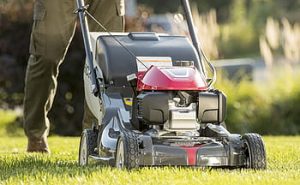No Mow May brings awareness to alternatives to green grass
May 4th, 2021 by Ric Hanson
(Radio Iowa) – If your neighbor’s lawn is looking shaggy, don’t scold them as they may be taking part in No Mow May. It’s an effort to toss out the image of a “perfect” lawn and raise awareness about alternatives that are friendlier to the environment and to pollinators, especially bees, which are now emerging from hibernation. Ginny Mitchell, education program coordinator of the Insect Zoo at Iowa State University, says lawns are America’s biggest crop and they provide no food or resources. “The non-native grasses that we use as our lawns were brought over in the 1700s and they’re really outdated,” Mitchell says. “They don’t bring anything to our lives except work, right? How many people like mowing the lawn or applying fertilizers or doing anything to your lawn. It’s a lot of work.”
The No Mow May effort is just starting to catch on, Mitchell says, as about two-dozen homeowners in the Ames area have pledged to take part. Some plan to convert all or at least part of their lawns away from traditional grass. “We can plant alternatives that also help pollinators and insects and wildlife in general, birds,” Mitchell says. “We can plant things like violets which are low-growing and do not require lawns. We can do many different ground covers, creeping thyme which can withhold foot traffic, white Dutch clover, all sorts of other plants.”
 Iowa has what’s believed to be the highest proportion of privately-held land in the U-S, which is why Mitchell says it’s important for homeowners to consider making the change. “Whether you’re converting your entire lawn, like I am, or just a small area, no matter what, it’s going to have a positive impact on the environment, reduce pesticides, reduce greenhouse gases from using a gas-powered lawn mower,” Mitchell says, “and frankly, you’ll have more time to stop and smell the roses.”
Iowa has what’s believed to be the highest proportion of privately-held land in the U-S, which is why Mitchell says it’s important for homeowners to consider making the change. “Whether you’re converting your entire lawn, like I am, or just a small area, no matter what, it’s going to have a positive impact on the environment, reduce pesticides, reduce greenhouse gases from using a gas-powered lawn mower,” Mitchell says, “and frankly, you’ll have more time to stop and smell the roses.”
Even people who live in apartments can help, by starting with their balconies and planting cone flowers, goldenrod, coreopsis and other pollinator-friendly alternatives.If you live in the city, though, you should make sure you know how tall your grass can grow before local ordinances kick-in and require the lawn to be mowed.
Learn more at the ISU Insect Zoo’s website: https://www.ent.iastate.edu/insectzoo/





